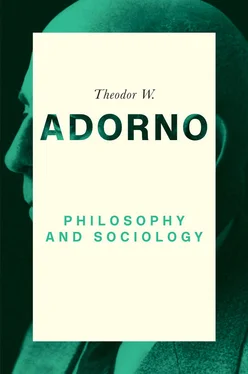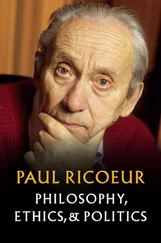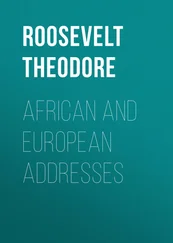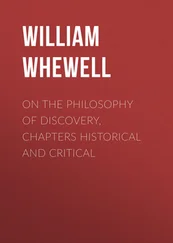1 ...6 7 8 10 11 12 ...17 Let us just look at a couple of revealing passages to see how Comte uses sociology to argue against philosophy. I shall be quoting mainly from the little selection from the Cours de philosophie positive , which was published by Kröner in 1933 and edited by Friedrich Blaschke. 6It is of course no longer that easy to lay your hands on this edition today, but it is probably still easier to find than the huge Dorn-Waentigsche translation that was published by Gustav Fischer in Jena in 1923, which is incredibly unwieldy. 7If you want to familiarize yourselves seriously with Comte, as I certainly recommend that you do, I would just advise you, for humanitarian reasons as it were, to try and get hold of the little selection of texts that I have mentioned and take a good look at it. For the three-volume edition is truly monstrous and indescribably dogged, garrulous and repetitious; no human being could reasonably be expected to read it from beginning to end. In any case I am completely opposed to the mendacious academic practice that insists that one must have closely studied great tomes of this kind, even though we all know we will never read them from start to finish the moment we pick them up. And in Comte’s case this is simply impossible. On the other hand, you will certainly come across some extremely interesting and thought-provoking things in his work, and Blaschke’s edition, to the extent that I have perused it, is very useful in this regard. To read the material in French rather than in German translation would naturally be rather time-consuming here. Nonetheless, I would like to take this opportunity, since we are about to look more closely at a few things from Comte and then some things from Durkheim, just to say that I believe a good knowledge of French is quite indispensable for the study of sociology – and I say this specifically for the sociologists among you, and especially for those who are only just beginning your studies in this area. Sociology emerged in France, and it is only when you are capable of reading in the original certain French sociological texts which are either untranslated or have sometimes been translated very poorly indeed, and here I am thinking especially of things like the Années Sociologiques , the journal founded by Durkheim, 8that you will really be able to understand the origins of sociology, and thereby acquire a richer concept of sociology than you will if you do not enjoy immediate access to the French texts themselves. And, quite apart from that, I believe it is an extraordinarily serious matter that fewer and fewer people are familiar with French today and imagine that they should rush to study English instead, since France is no longer a great power. I would say that, for anyone who seriously claims to share in the heritage of Western culture, if I may put it this way, it is just as important to be able to read and speak French as it is to read and speak English. And if that has been denied to many of you by our rather rigid educational system, I can only honestly advise you in the strongest terms to try and remedy this situation however you can. For I believe this is an element of culture and education that you really cannot do without. The university itself cannot directly provide this for you, for if you wish to study the romance languages at university level a sufficient knowledge of the language in question is effectively already presupposed. But all this just in passing.
Let me come directly to some of the passages in Comte where he specifically criticizes philosophy, and here I would particularly like to draw your attention to the fact that the objections originally raised against philosophy by sociology were expressed in a distinctly authoritarian spirit, namely in the spirit of the existing order, rather than in the revolutionary spirit that one typically and naively expects to find here. In this connection you must remember that the entire Comtean system is based on the idea of an equilibrium between the two principles of order and progress, where Comte defends the principle of progress precisely insofar as he speaks for the bourgeois society that has become emancipated from the structures of feudal and absolutist authority but also on behalf of order, insofar as, just like Hegel, he not only sees the horrors of the French Revolution but also sees that the ruthless realization of bourgeois equality, i.e. of the exchange principle as the sole criterion of society, tends to deform and unhinge the structure of society itself; in other words, he sees that this naked exchange relation is ultimately all that remains, and that this deformation of society threatens to expose it to what might typically be described today as ‘atomization’ or ‘massification’ – to use popular expressions which in Comte’s time were just as superficial and inadequate for capturing the real historical dynamics involved as they are today.
So I shall now read you a passage which will reveal this connection between the philosophy that is criticized by Comte, namely metaphysics, and the politically restorationist tendencies of his own thought. And here I simply want to bring out one Comtean thought which will show you precisely how the bourgeois principles of progress and rationality are combined with the principle of order in Comte. For here you will discover a very ancient Platonic theme, although the good Comte himself would doubtless be turning in his grave if he could hear me, over a hundred years after his death, ultimately describing him as a Platonist. And this is the thought that the task of ruling society essentially falls to a kind of science, indeed specifically to sociology. 9For Comte envisages sociology as a scientific discipline, as a neutral and entirely objective authority that stands above the play of social forces and is capable both of directing human progress – where this is understood in Saint-Simon’s sense as the progressive unfolding of the technical forces of production 10– and also of somehow containing and neutralizing the disorganizing, destructive and anarchic forces that arise and develop within society itself, and this idea, once again, strongly recalls the role of the state in Hegel. 11On this Comtean conception, therefore, sociology represents a kind of classless authority hovering above the play of social forces. And this anticipates a notion that we also encounter in the history of sociology in more recent times – in other words, something like the idea of the ‘free-floating intelligentsia’ in the work of my former colleague Mannheim. 12This idea is already present in Comte’s doctrine, and ultimately in Saint-Simon’s doctrine as well.
What Comte says is basically as follows. He criticizes the principle regarding the freedom of conscience – namely the principle expressed with particular force by Fichte 13but already affirmed by Kant – which claims that every single human being is responsible only to his own conscience, a principle which, as Comte quite rightly sees, embodies one of the most fundamental impulses of the bourgeois metaphysics of freedom. And it is typical of the way Comte already links philosophical concepts to specific social developments when you find him coupling this concept of the freedom of conscience with the concept of national sovereignty. Thus he goes on to say, in a passage you can find on page 49 of Blaschke’s edition: ‘It is also quite easy to estimate the value of the principle of the sovereignty of the people. It is the second conclusion drawn from the principle of the freedom of conscience, one which has been transferred from the intellectual domain to the political domain. This new stage of metaphysical politics’ – in other words, a politics which is supposed to spring from pure principles rather than merely conforming to the given facts: the kind of politics espoused by Fichte in a rather extreme way 14– ‘was required in order to proclaim the downfall of the old regime and prepare the way for a new constitution.’ As you can see, you already have a kind of sociology of knowledge here. Comte continues: ‘The peoples had to award themselves the right to change the already existing arrangements at will; otherwise all restrictions could only proceed from the old regime itself, the existing authorities would have to be maintained, and the social revolution’ – in other words, the French Revolution – ‘would have failed. It was the dogmatic canonization of the sovereignty of the people alone that made new political experiments possible.’ And then you can see the trajectory of Comte’s thought when he immediately goes on to say:
Читать дальше












